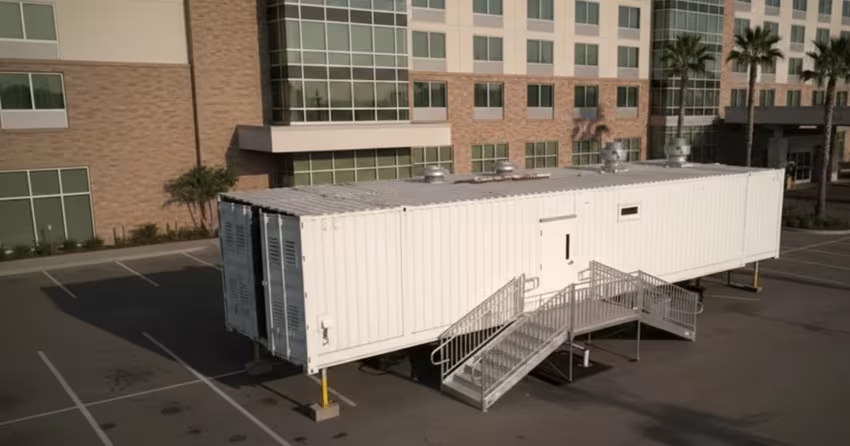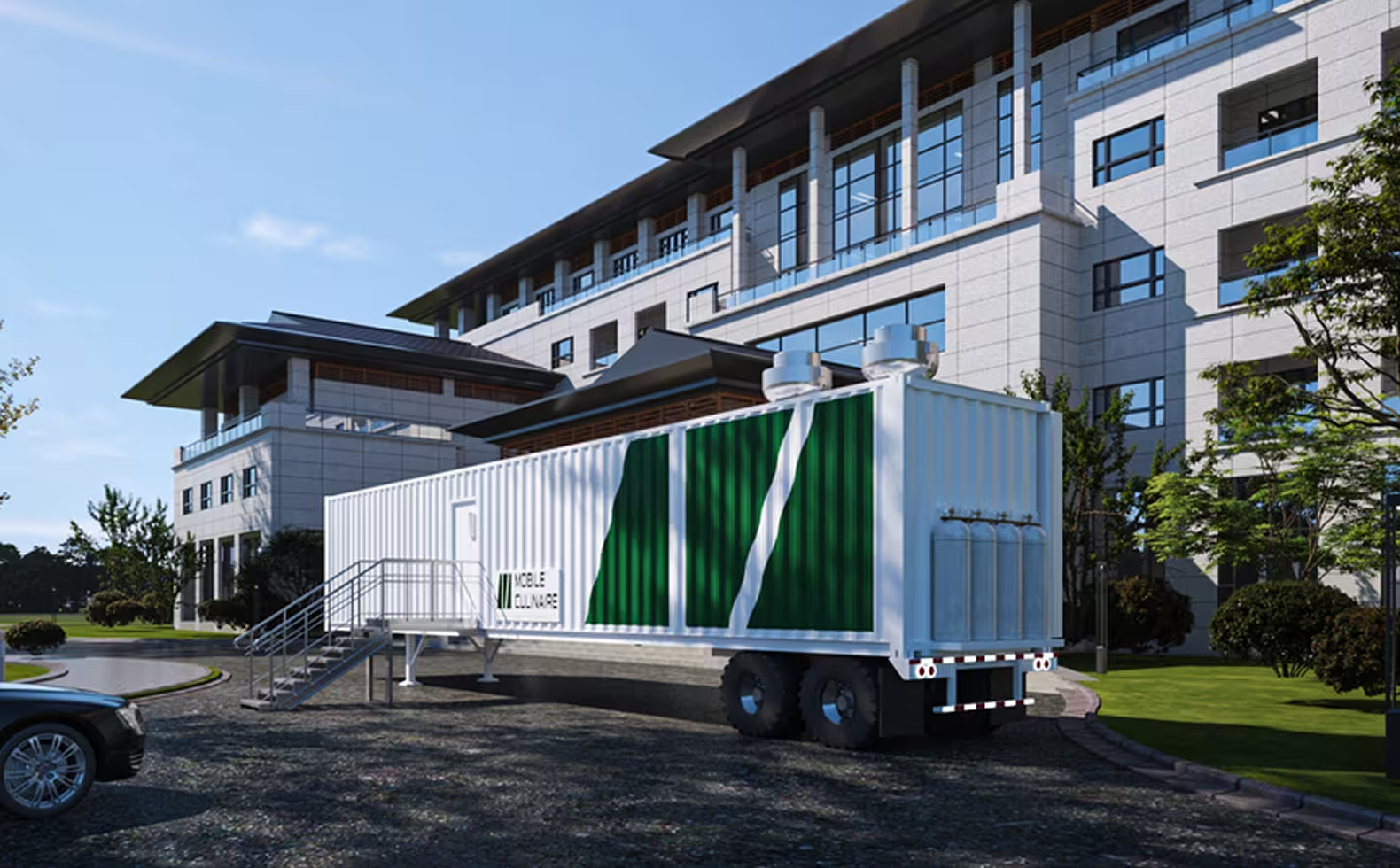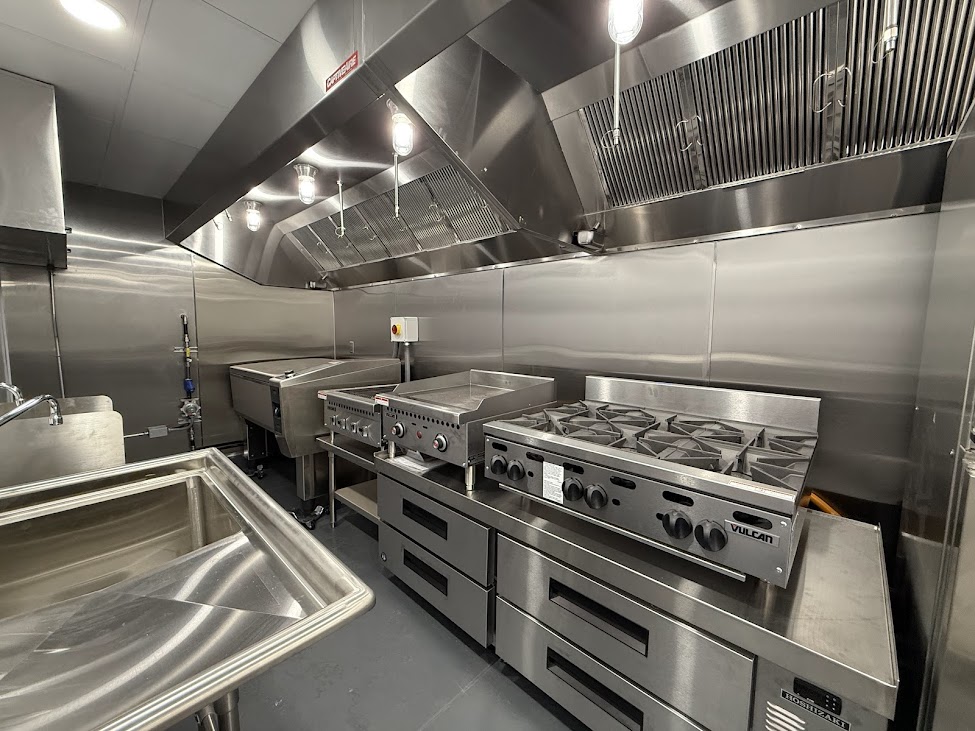
Introduction
Owning a commercial kitchen has traditionally symbolized success and permanence for food businesses. But in today’s fast-paced and capital-conscious environment, committing to a fully built-out kitchen isn’t always the smartest move. High upfront costs, complex permits, and rigid space constraints can hinder growth, especially for businesses that need to stay agile.
That’s where the option of a commercial kitchen for rent becomes a strategic advantage. Renting allows you to scale operations, avoid heavy investments, and simplify compliance, without sacrificing the professional-grade facilities your business requires.
In this article, we’ll explore the key scenarios where renting a commercial kitchen makes more sense than owning one. From cost efficiency and regulatory simplicity to operational flexibility and mobile kitchen solutions, we’ll help you determine when renting is the smartest path for your food business.
What Is A Commercial Kitchen For Rent?
A commercial kitchen for rent is a fully-equipped, licensed kitchen space that businesses can lease on a temporary or long-term basis. Unlike owning a kitchen, where you invest in property, construction, and equipment, renting allows you to access a professional-grade kitchen without the overhead of ownership.
Common Types of Rental Commercial Kitchens:
- Commissary Kitchens: Shared kitchen spaces used by multiple businesses on a rotational basis.
- Private Kitchen: Dedicated rental kitchens designed for exclusive use.
- Mobile Kitchen Trailers: Fully functional kitchens mounted on trailers, ideal for on-site catering and events.
- Pop-Up Kitchen Spaces: Temporary setups for events, seasonal service, or pilot concepts. Often housed in modular or container-based structures.
Note: For more information on the different types of commercial kitchen rentals, read our article here.
Who Rents Commercial Kitchens?
- Caterers handling off-site events.
- Pop-up Restaurants testing new concepts.
- Hotels & Resorts managing seasonal demand.
- Food Entrepreneurs launching new products or markets.
- Emergency Services needing rapid-deployment kitchen solutions.
Note: For inspiration, read our article here about the use cases of commercial kitchens for rent.
%2520(1).jpeg)
Commercial Kitchen: Should You Rent or Own?
Cost Breakdown
For many food businesses, the financial implications of owning a kitchen extend far beyond the initial build-out. Let’s break down the true costs of renting vs. owning a commercial kitchen, so you can see where the smarter investment lies.

Note: Renting transforms capital-heavy ownership expenses into manageable operational costs. It’s a strategic choice for businesses that prioritize flexibility, cash flow, and scalability over long-term asset ownership.
Permitting & Compliance
Owning a commercial kitchen means navigating a maze of permits, inspections, and compliance requirements. Health department approvals, zoning restrictions, fire safety certifications, and ongoing inspections can take months and cost tens of thousands of dollars to secure.
When you opt for a commercial kitchen for rent, much of this burden shifts to the provider. Established rental providers ensure that their facilities are fully compliant with local health codes, building regulations, and safety standards. This dramatically reduces time-to-market and eliminates the complexities of managing compliance on your own.
For example, many mobile and modular kitchen rentals come permit-ready, with built-in utilities, proper ventilation, fire suppression systems, and code-compliant layouts. This is a crucial advantage for businesses that need to operate quickly or lack the in-house resources to manage permitting processes.
Note: Renting a kitchen can cut down permit and compliance lead times by up to 70% compared to setting up a permanent kitchen from scratch.
Space & Flexibility
One of the biggest downsides of owning a kitchen is being locked into a fixed commercial kitchen size. As your business grows, or during seasonal peaks, you may find yourself outgrowing your space or paying for underutilized square footage during off-peak times.
Renting a kitchen offers flexibility that ownership simply can’t match. You can:
- Scale up to a larger kitchen suite for high-volume projects.
- Downsize during slower periods to save on operational costs.
- Rent additional prep or storage space for specific events or contracts.
This flexibility extends to mobile kitchen rentals, which allow businesses to configure the exact size and layout they need, whether for a short-term project or a scalable long-term solution.
Note: Mobile kitchen rentals have become a go-to solution for caterers and event planners needing adjustable space without committing to permanent construction costs.
Short-Term Projects & Seasonal Demand
Not every food business needs a year-round, permanent kitchen. Pop-up restaurants, food festivals, seasonal catering contracts, and temporary corporate events often require professional kitchen facilities for limited timeframes.
Owning a kitchen for these types of projects is overkill. The capital outlay, long-term lease obligations, and operational overhead simply don’t align with the temporary nature of these ventures.
By renting a commercial kitchen for short-term projects, businesses can align their kitchen costs directly with project timelines. Whether you need a space for a week-long event or a seasonal surge in demand, renting allows you to scale operations without being burdened by unused assets during downtime.
Note: Rental kitchens have become a strategic choice for caterers and event planners looking to expand their operational capacity during high-demand periods without the overhead of ownership.
.jpeg)
Business Expansion & Market Testing
Testing a new market or launching in a different city requires flexibility. Investing in a permanent kitchen space in an unproven location is a risky bet that could lock up capital and limit mobility.
Renting a commercial kitchen offers a low-risk pathway to explore new markets. Commissary kitchens, mobile kitchen trailers, and modular setups allow businesses to “test the waters” in new territories without heavy investment. This agility is crucial for businesses scaling operations incrementally.
For instance, food entrepreneurs piloting a new product line or a restaurant group expanding into a new city can rent kitchen space to establish local operations, assess demand, and only commit to permanent infrastructure once success is proven.
Note: Businesses using rental kitchens for market testing reduced expansion risks by 60% compared to those investing in owned facilities upfront.
Mobility & On-Site Cooking
Some business models require the kitchen to go where the action is. Whether it’s catering a large outdoor event, supporting a film production, or handling disaster relief operations, on-site cooking capabilities are a must.
Owning a brick-and-mortar kitchen limits your reach. Renting a commercial mobile kitchen gives businesses operational mobility to cook and serve on-location. These rental units are fully equipped, health code-compliant, and designed for quick deployment.
Mobile kitchens are also ideal for:
- Festivals and large-scale public events.
- Corporate activations or brand promotions.
- Temporary setups during restaurant renovations or relocations.
Hidden Costs of Ownership: Maintenance, Upgrades, Downtime
Owning a commercial kitchen isn’t just about the initial investment, it’s about ongoing expenses that can add up over time. Regular equipment maintenance, emergency repairs, utility bills, and unexpected downtime are all hidden costs that can disrupt cash flow.
Every repair or equipment upgrade falls squarely on the owner's shoulders, often at inopportune times. Moreover, any downtime due to maintenance or compliance failures can lead to revenue loss.
When you rent a kitchen, maintenance and repairs are typically the provider’s responsibility. This ensures:
- Predictable, hassle-free budgeting.
- Less operational downtime.
- Access to updated equipment without capital outlay.
Note: Maintenance and repair costs can consume up to 10-15% of a commercial kitchen’s annual operating budget for owners.
.jpeg)
Why Mobile Culinaire Is the Smarter Choice Over Owning a Commercial Kitchen
Building and owning a commercial kitchen is a massive commitment. It ties up capital, drags you into complex permitting and construction processes, and leaves you with fixed infrastructure that may not align with your evolving business needs.
Mobile Culinaire offers a smarter alternative. We deliver fully equipped, code-compliant mobile kitchens that eliminate the high costs, risks, and rigidity of ownership, allowing you to stay agile and operational without the headaches of owning and managing a facility.
Here’s why businesses choose to rent with Mobile Culinaire rather than build or buy:
Zero Upfront Capital Expenditure
Owning a kitchen demands hundreds of thousands in upfront costs: construction, equipment, permits, utilities setup. Renting with Mobile Culinaire eliminates this financial burden. You get a turnkey, production-ready kitchen without locking up your capital in real estate or infrastructure. This frees you to allocate resources toward growing your business: expanding your menu, marketing, hiring talent, while we handle the kitchen buildout.
Rapid Deployment
Building a commercial kitchen can take 6 to 12 months or more with design, permitting, and construction delays. Mobile Culinaire delivers a fully operational kitchen in as little as 2–4 weeks. For businesses facing sudden kitchen closures, tight event deadlines, or urgent expansion needs, this time advantage is critical. You stay in business while others are still breaking ground.
Built-In Compliance
Owning a kitchen means managing health permits, fire code compliance, ADA accessibility, and local regulations on your own. Any misstep could cause delays, penalties, or worse — shutdowns.
Mobile Culinaire simplifies this. Every unit is:
- NSF-certified for food safety
- Equipped with NFPA-compliant fire suppression systems
- Designed to meet ADA accessibility standards
- Delivered with full documentation (floor plans, equipment specs, utility diagrams)
We streamline approvals so you can operate with confidence, without the risk of permit-related setbacks.
.jpeg)
Scalable & Customizable Layouts
Owning locks you into a fixed commercial kitchen size. Outgrowing your space means costly renovations; underutilizing it wastes money. Mobile Culinaire offers scalable & mobile kitchen setups tailored to your production demands. Whether you need to produce 100 or 1,000 meals per day, we customize your layout and can expand your capacity mid-project by connecting additional units. You only pay for what you need, when you need it.
Operational Mobility
Permanent kitchens stay put. But what if you need to serve at an event, open a pop-up, or respond to a crisis? Mobile Culinaire’s mobile kitchen trailers let you bring your culinary operations on-site, wherever business opportunities arise. Ownership limits your reach, while renting with us gives you mobility, speed, and strategic flexibility.
Simplified Project Management
Owning involves dealing with architects, contractors, utility providers, and health inspectors. It’s a full-time project management job.
With Mobile Culinaire, we manage:
- Site logistics and layout planning
- Utility coordination (gas, water, electric, wastewater)
- Permitting support with ready-to-submit documentation
- On-site delivery, leveling, and setup
- Ongoing technical support during deployment
You stay focused on your operations, while we handle everything else.
- Full cooklines (fryers, ovens, ranges, flat tops)
- Walk-in refrigeration and freezer units
- Warewashing zones with high-temp dishwashers
- Dedicated prep areas for efficient workflow and food safety
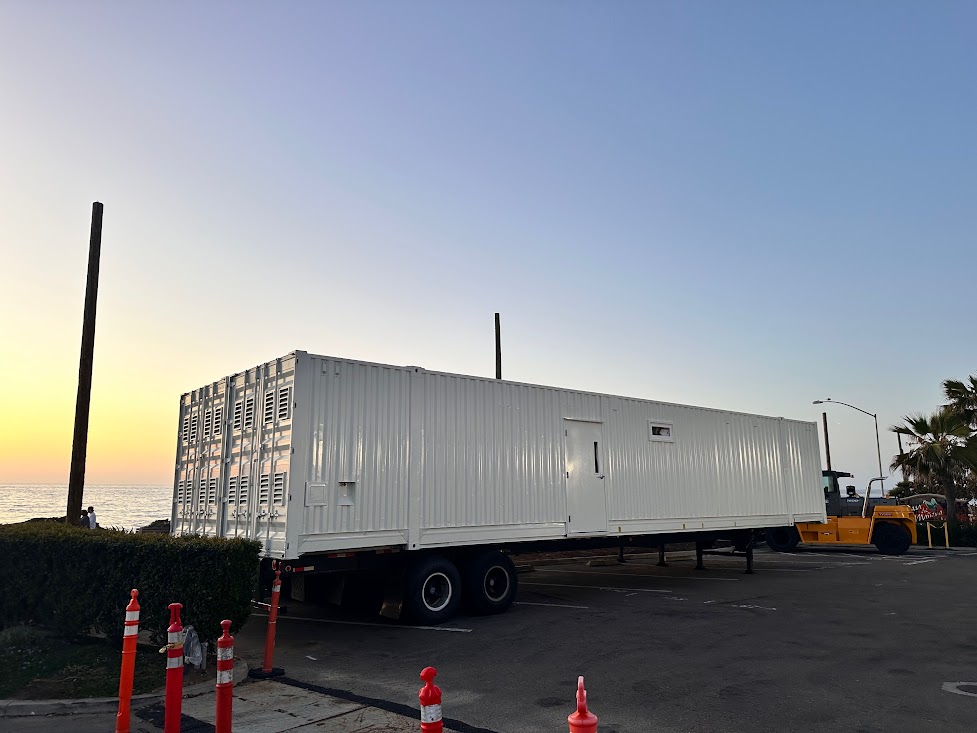
Conclusion & Next Steps
For many food businesses, owning a commercial kitchen used to symbolize growth and stability. But the reality of today's fast-paced and cost-sensitive market has flipped that narrative. Owning ties up capital, demands time-consuming permits, and locks you into rigid infrastructure that may not align with your evolving operational needs.
Renting a commercial kitchen isn’t just a temporary solution, it’s a strategic move that offers financial flexibility, scalability, and operational speed. Whether you're a caterer handling seasonal demand, a hotel undergoing renovations, or a restaurant testing new markets, renting gives you the agility to adapt and thrive without the risks and burdens of ownership.
With Mobile Culinaire, you’re not just renting space. You’re gaining a fully-equipped, compliance-ready kitchen delivered and installed in weeks, backed by experts who handle the logistics, permitting, and support, so you can stay focused on your business.
When flexibility, speed, and cost control are critical, renting makes more business sense than buying. And when renting, Mobile Culinaire ensures you do it right: with kitchens tailored to your production needs, deployed on your timeline, and designed to keep you serving without interruption.
Ready to rent a commercial kitchen? Explore our projects or contact us to plan your next rental.
People Also Ask (FAQ)
When is renting a commercial kitchen better than owning one?
Renting a commercial kitchen eliminates the massive upfront costs of building and equipping a kitchen, streamlines compliance hurdles, and gives you the flexibility to scale operations based on demand. Ownership locks you into fixed infrastructure and exposes you to ongoing maintenance and repair risks. Renting through providers like Mobile Culinaire offers a cost-effective, low-risk alternative that aligns with modern business needs.
Does renting a kitchen reduce operational risks compared to ownership?
Absolutely. Owning a kitchen exposes you to financial risks from property market fluctuations, asset depreciation, and unforeseen maintenance costs. Renting transfers much of that operational risk to the provider. With Mobile Culinaire, you benefit from transparent rental pricing, built-in maintenance support, and flexible lease terms, ensuring you maintain operational agility without asset-related risks.
How quickly can a mobile kitchen be delivered and set up?
Mobile kitchens can be delivered and installed in 2–4 weeks, a fraction of the time it takes to build a new kitchen. Thanks to their plug-and-play design, once the unit arrives on site, you’re only hours away from being production-ready: a critical advantage for time-sensitive projects or emergencies.
Testimonial
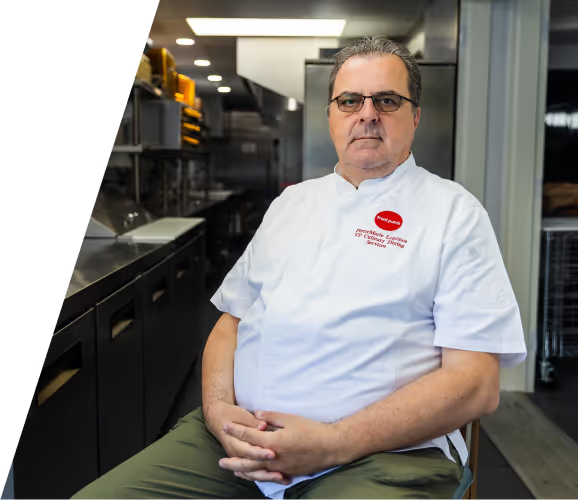
"What is standing out when you look at the mobile kitchen operation is the efficiency that we can really achieve because it's built for that."
Tell us about your kitchen needs and request a quote.
.png)
Turnkey mobile kitchen
.png)
Proudly made in-house in the USA
.png)
Commercial grade kitchen equipment
.png)
Code-compliant
Trusted by Industry Leaders



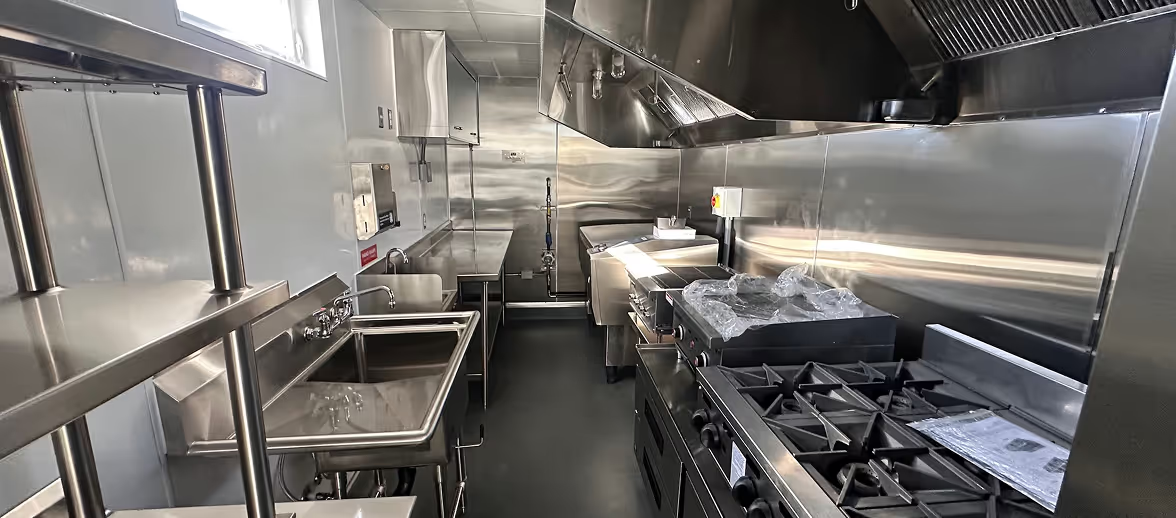
.gif)

%20(1)%20(1).avif)
